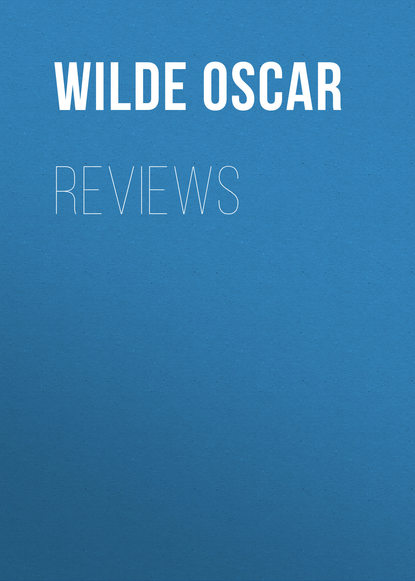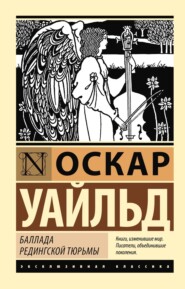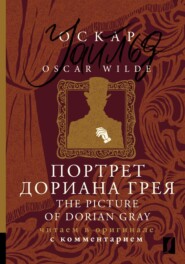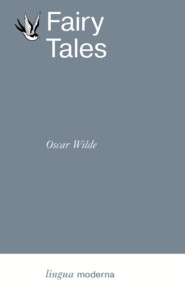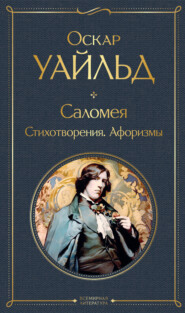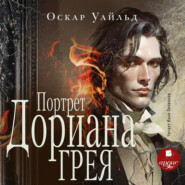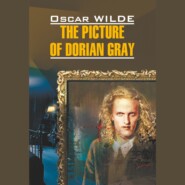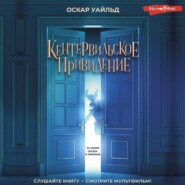По всем вопросам обращайтесь на: info@litportal.ru
(©) 2003-2024.
✖
Reviews
Настройки чтения
Размер шрифта
Высота строк
Поля
Of the drama in the sense of disinterested presentation she had no idea, and what is the strength and life-blood of her novels is the weakness of her dramatic works. But in the main she was right. Art without personality is impossible. And yet the aim of art is not to reveal personality, but to please. This she hardly recognised in her æsthetics, though she realised it in her work. On literary style she has some excellent remarks. She dislikes the extravagances of the romantic school and sees the beauty of simplicity. ‘Simplicity,’ she writes, ‘is the most difficult thing to secure in this world: it is the last limit of experience and the last effort of genius.’ She hated the slang and argot of Paris life, and loved the words used by the peasants in the provinces. ‘The provinces,’ she remarks, ‘preserve the tradition of the original tongue and create but few new words. I feel much respect for the language of the peasantry; in my estimation it is the more correct.’
She thought Flaubert too much preoccupied with the sense of form, and makes these excellent observations to him – perhaps her best piece of literary criticism. ‘You consider the form as the aim, whereas it is but the effect. Happy expressions are only the outcome of emotion and emotion itself proceeds from a conviction. We are only moved by that which we ardently believe in.’ Literary schools she distrusted. Individualism was to her the keystone of art as well as of life. ‘Do not belong to any school: do not imitate any model,’ is her advice. Yet she never encouraged eccentricity. ‘Be correct,’ she writes to Eugene Pelletan, ‘that is rarer than being eccentric, as the time goes. It is much more common to please by bad taste than to receive the cross of honour.’
On the whole, her literary advice is sound and healthy. She never shrieks and she never sneers. She is the incarnation of good sense. And the whole collection of her letters is a perfect treasure-house of suggestions both on art and on politics. The manner of the translation is often rather clumsy, but the matter is always so intensely interesting that we can afford to be charitable.
Letters of George Sand. Translated and edited by Raphael Ledos de Beaufort. (Ward and Downey.)
NEWS FROM PARNASSUS
(Pall Mall Gazette, April 12, 1886.)
That most delightful of all French critics, M. Edmond Scherer, has recently stated in an article on Wordsworth that the English read far more poetry than any other European nation. We sincerely hope this may be true, not merely for the sake of the public but for the sake of the poets also. It would be sad indeed if the many volumes of poems that are every year published in London found no readers but the authors themselves and the authors’ relations; and the real philanthropist should recognise it as part of his duties to buy every new book of verse that appears. Sometimes, we acknowledge, he will be disappointed, often he will be bored; still now and then he will be amply rewarded for his reckless benevolence.
Mr. George Francis Armstrong’s Stories of Wicklow, for instance, is most pleasant reading. Mr. Armstrong is already well known as the author of Ugone, King Saul and other dramas, and his latest volume shows that the power and passion of his early work has not deserted him. Most modern Irish poetry is purely political and deals with the wickedness of the landlords and the Tories; but Mr. Armstrong sings of the picturesqueness of Erin, not of its politics. He tells us very charmingly of the magic of its mists and the melody of its colour, and draws a most captivating picture of the peasants of the county Wicklow, whom he describes as
A kindly folk in vale and moor,
Unvexed with rancours, frank and free
In mood and manners – rich with poor
Attuned in happiest amity:
Where still the cottage door is wide,
The stranger welcomed at the hearth,
And pleased the humbler hearts confide
Still in the friend of gentler birth.
The most ambitious poem in the volume is De Verdun of Darragh. It is at once lyrical and dramatic, and though its manner reminds us of Browning and its method of Maud, still all through it there is a personal and individual note. Mr. Armstrong also carefully observes the rules of decorum, and, as he promises his readers in a preface, keeps quite clear of ‘the seas of sensual art.’ In fact, an elderly maiden lady could read this volume without a blush, a thrill, or even an emotion.
Dr. Goodchild does not possess Mr. Armstrong’s literary touch, but his Somnia Medici is distinguished by a remarkable quality of forcible and direct expression. The poem that opens his volume, Myrrha, or A Dialogue on Creeds, is quite as readable as a metrical dialogue on creeds could possibly be; and The Organ Builder is a most romantic story charmingly told. Dr. Goodchild seems to be an ardent disciple of Mr. Browning, and though he may not be able to reproduce the virtues of his master, at least he can echo his defects very cleverly. Such a verse as —
’Tis the subtle essayal
Of the Jews and Judas,
Such lying lisp
Might hail a will-o’-the-wisp,
A thin somebody – Theudas —
is an excellent example of low comedy in poetry. One of the best poems in the book is The Ballad of Three Kingdoms. Indeed, if the form were equal to the conception, it would be a delightful work of art; but Dr. Goodchild, though he may be a master of metres, is not a master of music yet. His verse is often harsh and rugged. On the whole, however, his volume is clever and interesting.
Mr. Keene has not, we believe, a great reputation in England as yet, but in India he seems to be well known. From a collection of criticisms appended to his volume it appears that the Overland Mail has christened him the Laureate of Hindostan and that the Allahabad Pioneer once compared him to Keats. He is a pleasant rhymer, as rhymers go, and, though we strongly object to his putting the Song of Solomon into bad blank verse, still we are quite ready to admire his translations of the Pervigilium Veneris and of Omar Khayyam. We wish he would not write sonnets with fifteen lines. A fifteen-line sonnet is as bad a monstrosity as a sonnet in dialogue. The volume has the merit of being very small, and contains many stanzas quite suitable for valentines.
Finally we come to Procris and Other Poems, by Mr. W. G. Hole. Mr. Hole is apparently a very young writer. His work, at least, is full of crudities, his syntax is defective, and his grammar is questionable. And yet, when all is said, in the one poem of Procris it is easy to recognise the true poetic ring. Elsewhere the volume is amateurish and weak. The Spanish Main was suggested by a leader in the Daily Telegraph, and bears all the traces of its lurid origin. Sir Jocellyn’s Trust is a sort of pseudo-Tennysonian idyll in which the damozel says to her gallant rescuer, ‘Come, come, Sir Knight, I catch my death of cold,’ and recompenses him with
What noble minds
Regard the first reward, – an orphan’s thanks.
Nunc Dimittis is dull and The Wandering Jew dreadful; but Procris is a beautiful poem. The richness and variety of its metaphors, the music of its lines, the fine opulence of its imagery, all seem to point to a new poet. Faults, it is true, there are in abundance; but they are faults that come from want of trouble, not from want of taste. Mr. Hole shows often a rare and exquisite sense of beauty and a marvellous power of poetic vision, and if he will cultivate the technique of his craft a little more we have no doubt but that he will some day give us work worthy to endure. It is true that there is more promise than perfection in his verse at present, yet it is a promise that seems likely to be fulfilled.
(1) Stories of Wicklow. By George Francis Armstrong, M.A. (Longmans, Green and Co.)
(2) Somnia Medici. By John A. Goodchild. Second Series. (Kegan Paul.)
(3) Verses: Translated and Original. By H. E. Keene. (W. H. Allen and Co.)
(4) Procris and Other Poems. By W. G. Hole. (Kegan Paul.)
SOME NOVELS
(Pall Mall Gazette, April 14, 1886.)
After a careful perusal of ’Twixt Love and Duty, by Mr. Tighe Hopkins, we confess ourselves unable to inform anxious inquirers who it is that is thus sandwiched, and how he (or she) got into so unpleasant a predicament. The curious reader with a taste for enigmas may be advised to find out for himself – if he can. Even if he be unsuccessful, his trouble will be repaid by the pleasant writing and clever character drawing of Mr. Hopkins’s tale. The plot is less praiseworthy. The whole Madeira episode seems to lead up to this dilemma, and after all it comes to nothing. We brace up our nerves for a tragedy and are treated instead to the mildest of marivaudage – which is disappointing. In conclusion, one word of advice to Mr. Hopkins: let him refrain from apostrophising his characters after this fashion: ‘Oh, Gilbert Reade, what are you about that you dally with this golden chance?’ and so forth. This is one of the worst mannerisms of a bygone generation of story tellers.
Mr. Gallenga has written, as he says, ‘a tale without a murder,’ but having put a pistol-ball through his hero’s chest and left him alive and hearty notwithstanding, he cannot be said to have produced a tale without a miracle. His heroine, too, if we may judge by his descriptions of her, is ‘all a wonder and a wild desire.’ At the age of seventeen she ‘was one of the Great Maker’s masterpieces.. a living likeness of the Dresden Madonna.’ One rather shudders to think of what she may become at forty, but this is an impertinent prying into futurity. She hails from ‘Maryland, my Maryland!’ and has ‘received a careful, if not a superior, education.’ Need we add that she marries the heir to an earldom who, as aforesaid, has had himself perforated by a pistol-bullet on her behalf? Mr. Gallenga’s division of this book into acts and scenes is not justified by anything specially dramatic either in its structure or its method. The dialogue, in truth, is somewhat stilted. Nevertheless, its first-hand sketches of Roman society are not without interest, and one or two characters seem to be drawn from nature.
The Life’s Mistake which forms the theme of Mrs. Lovett Cameron’s two volumes is not a mistake after all, but results in unmixed felicity; and as it is brought about by fraud on the part of the hero, this conclusion is not as moral as it might be. For the rest, the tale is a very familiar one. Its personages are the embarrassed squire with his charming daughter, the wealthy and amorous mortgagee, and the sailor lover who is either supposed to be drowned or falsely represented to be fickle – in Mrs. Cameron’s tale he is both in succession. When we add that there is a stanza from Byron on the title-page and a poetical quotation at the beginning of each chapter, we have possessed the discerning reader of all necessary information both as to the matter and the manner of Mrs. Cameron’s performance.
Mr. E. O. Pleydell-Bouverie has endowed the novel-writing fraternity with a new formula for the composition of titles. After J. S.; or, Trivialities there is no reason why we should not have A. B.; or, Platitudes, M.N.; or, Sentimentalisms, Y.Z.; or, Inanities. There are many books which these simple titles would characterise much more aptly than any high-flown phrases – as aptly, in fact, as Mr. Bouverie’s title characterises the volume before us. It sets forth the uninteresting fortunes of an insignificant person, one John Stiles, a briefless barrister. The said John falls in love with a young lady, inherits a competence, omits to tell his love, and is killed by the bursting of a fowling-piece – that is all. The only point of interest presented by the book is the problem as to how it ever came to be written. We can scarcely find the solution in Mr. Bouverie’s elaborately smart style which cannot be said to transmute his ‘trivialities’ into ‘flies in amber.’
Mr. Swinburne once proposed that it should be a penal offence against literature for any writer to affix a proverb, a phrase or a quotation to a novel, by way of tag or title. We wonder what he would say to the title of ‘Pen Oliver’s’ last book! Probably he would empty on it the bitter vial of his scorn and satire. All But is certainly an intolerable name to give to any literary production. The story, however, is quite an interesting one. At Laxenford Hall live Lord and Lady Arthur Winstanley. Lady Arthur has two children by her first marriage, the elder of whom, Walter Hope-Kennedy by name, is heir to the broad acres. Walter is a pleasant English boy, fonder of cricket than of culture, healthy, happy and susceptible. He falls in love with Fanny Taylor, a pretty village girl; is thrown out of his dog-cart one night through the machinations of a jealous rival, breaks one of his ribs and gets a violent fever. His stepfather tries to murder him by subcutaneous injections of morphia but is detected by the local doctor, and Walter recovers. However, he does not marry Fanny after all, and the story ends ineffectually. To say of a dress that ‘it was rather under than over adorned’ is not very pleasing English, and such a phrase as ‘almost always, but by no means invariably,’ is quite detestable. Still we must not expect the master of the scalpel to be the master of the stilus as well. All But is a very charming tale, and the sketches of village life are quite admirable. We recommend it to all who are tired of the productions of Mr. Hugh Conway’s dreadful disciples.
(1) ’Twixt Love and Duty: A Novel. By Tighe Hopkins. (Chatto and Windus.)
(2) Jenny Jennet: A Tale Without a Murder. By A. Gallenga. (Chapman and Hall.)
(3) A Life’s Mistake: A Novel. By Mrs. H. Lovett Cameron. (Ward and Downey.)
(4) J. S.; or, Trivialities: A Novel. By Edward Oliver Pleydell-Bouverie. (Griffith, Farren and Co.)
(5) All But: A Chronicle of Laxenford Life. By Pen Oliver, F.R.C.S. (Kegan Paul.)
A LITERARY PILGRIM
(Pall Mall Gazette, April 17, 1886.)
Antiquarian books, as a rule, are extremely dull reading. They give us facts without form, science without style, and learning without life. An exception, however, must be made for M. Gaston Boissier’s Promenades Archéologiques. M. Boissier is a most pleasant and picturesque writer, and is really able to give his readers useful information without ever boring them, an accomplishment which is entirely unknown in Germany, and in England is extremely rare.
The first essay in his book is on the probable site of Horace’s country-house, a subject that has interested many scholars from the Renaissance down to our own day. M. Boissier, following the investigations of Signor Rosa, places it on a little hill over-looking the Licenza, and his theory has a great deal to recommend it. The plough still turns up on the spot the bricks and tiles of an old Roman villa; a spring of clear water, like that of which the poet so often sang, ‘breaks babbling from the hollow rock,’ and is still called by the peasants Fonte dell’ Oratini, some faint echo possibly of the singer’s name; the view from the hill is just what is described in the epistles, ‘Continui montes nisi dissocientur opaca valle’; hard by is the site of the ruined temple of Vacuna, where Horace tells us he wrote one of his poems, and the local rustics still go to Varia (Vicovaro) on market days as they used to do when the graceful Roman lyrist sauntered through his vines and played at being a country gentleman.
M. Boissier, however, is not content merely with identifying the poet’s house; he also warmly defends him from the charge that has been brought against him of servility in accepting it. He points out that it was only after the invention of printing that literature became a money-making profession, and that, as there was no copyright law at Rome to prevent books being pirated, patrons had to take the place that publishers hold, or should hold, nowadays. The Roman patron, in fact, kept the Roman poet alive, and we fancy that many of our modern bards rather regret the old system. Better, surely, the humiliation of the sportula than the indignity of a bill for printing! Better to accept a country-house as a gift than to be in debt to one’s landlady! On the whole, the patron was an excellent institution, if not for poetry at least for the poets; and though he had to be propitiated by panegyrics, still are we not told by our most shining lights that the subject is of no importance in a work of art? M. Boissier need not apologise for Horace: every poet longs for a Mæcenas.
An essay on the Etruscan tombs at Corneto follows, and the remainder of the volume is taken up by a most fascinating article called Le Pays de l’Enéide. M. Boissier claims for Virgil’s descriptions of scenery an absolute fidelity of detail. ‘Les poètes anciens,’ he says, ‘ont le goût de la précision et de la fidélité: ils n’imaginent guère de paysages en l’air,’ and with this view he visited every place in Italy and Sicily that Virgil has mentioned. Sometimes, it is true, modern civilisation, or modern barbarism, has completely altered the aspect of the scene; the ‘desolate shore of Drepanum,’ for instance (‘Drepani illætabilis ora’) is now covered with thriving manufactories and stucco villas, and the ‘bird-haunted forest’ through which the Tiber flowed into the sea has long ago disappeared. Still, on the whole, the general character of the Italian landscape is unchanged, and M. Boissier’s researches show very clearly how personal and how vivid were Virgil’s impressions of nature. The subject is, of course, a most interesting one, and those who love to make pilgrimages without stirring from home cannot do better than spend three shillings on the French Academician’s Promenades Archéologiques.
Nouvelles Promenades Archéologiques, Horace et Virgile. By Gaston Boissier. (Hachette.)
BÉRANGER IN ENGLAND
(Pall Mall Gazette, April 21, 1886.)
A philosophic politician once remarked that the best possible form of government is an absolute monarchy tempered by street ballads. Without at all agreeing with this aphorism we still cannot but regret that the new democracy does not use poetry as a means for the expression of political opinion. The Socialists, it is true, have been heard singing the later poems of Mr. William Morris, but the street ballad is really dead in England. The fact is that most modern poetry is so artificial in its form, so individual in its essence and so literary in its style, that the people as a body are little moved by it, and when they have grievances against the capitalist or the aristocrat they prefer strikes to sonnets and rioting to rondels.
Possibly, Mr. William Toynbee’s pleasant little volume of translations from Béranger may be the herald of a new school. Béranger had all the qualifications for a popular poet. He wrote to be sung more than to be read; he preferred the Pont Neuf to Parnassus; he was patriotic as well as romantic, and humorous as well as humane. Translations of poetry as a rule are merely misrepresentations, but the muse of Béranger is so simple and naïve that she can wear our English dress with ease and grace, and Mr. Toynbee has kept much of the mirth and music of the original. Here and there, undoubtedly, the translation could be improved upon; ‘rapiers’ for instance is an abominable rhyme to ‘forefathers’; ‘the hated arms of Albion’ in the same poem is a very feeble rendering of ‘le léopard de l’Anglais,’ and such a verse as
She thought Flaubert too much preoccupied with the sense of form, and makes these excellent observations to him – perhaps her best piece of literary criticism. ‘You consider the form as the aim, whereas it is but the effect. Happy expressions are only the outcome of emotion and emotion itself proceeds from a conviction. We are only moved by that which we ardently believe in.’ Literary schools she distrusted. Individualism was to her the keystone of art as well as of life. ‘Do not belong to any school: do not imitate any model,’ is her advice. Yet she never encouraged eccentricity. ‘Be correct,’ she writes to Eugene Pelletan, ‘that is rarer than being eccentric, as the time goes. It is much more common to please by bad taste than to receive the cross of honour.’
On the whole, her literary advice is sound and healthy. She never shrieks and she never sneers. She is the incarnation of good sense. And the whole collection of her letters is a perfect treasure-house of suggestions both on art and on politics. The manner of the translation is often rather clumsy, but the matter is always so intensely interesting that we can afford to be charitable.
Letters of George Sand. Translated and edited by Raphael Ledos de Beaufort. (Ward and Downey.)
NEWS FROM PARNASSUS
(Pall Mall Gazette, April 12, 1886.)
That most delightful of all French critics, M. Edmond Scherer, has recently stated in an article on Wordsworth that the English read far more poetry than any other European nation. We sincerely hope this may be true, not merely for the sake of the public but for the sake of the poets also. It would be sad indeed if the many volumes of poems that are every year published in London found no readers but the authors themselves and the authors’ relations; and the real philanthropist should recognise it as part of his duties to buy every new book of verse that appears. Sometimes, we acknowledge, he will be disappointed, often he will be bored; still now and then he will be amply rewarded for his reckless benevolence.
Mr. George Francis Armstrong’s Stories of Wicklow, for instance, is most pleasant reading. Mr. Armstrong is already well known as the author of Ugone, King Saul and other dramas, and his latest volume shows that the power and passion of his early work has not deserted him. Most modern Irish poetry is purely political and deals with the wickedness of the landlords and the Tories; but Mr. Armstrong sings of the picturesqueness of Erin, not of its politics. He tells us very charmingly of the magic of its mists and the melody of its colour, and draws a most captivating picture of the peasants of the county Wicklow, whom he describes as
A kindly folk in vale and moor,
Unvexed with rancours, frank and free
In mood and manners – rich with poor
Attuned in happiest amity:
Where still the cottage door is wide,
The stranger welcomed at the hearth,
And pleased the humbler hearts confide
Still in the friend of gentler birth.
The most ambitious poem in the volume is De Verdun of Darragh. It is at once lyrical and dramatic, and though its manner reminds us of Browning and its method of Maud, still all through it there is a personal and individual note. Mr. Armstrong also carefully observes the rules of decorum, and, as he promises his readers in a preface, keeps quite clear of ‘the seas of sensual art.’ In fact, an elderly maiden lady could read this volume without a blush, a thrill, or even an emotion.
Dr. Goodchild does not possess Mr. Armstrong’s literary touch, but his Somnia Medici is distinguished by a remarkable quality of forcible and direct expression. The poem that opens his volume, Myrrha, or A Dialogue on Creeds, is quite as readable as a metrical dialogue on creeds could possibly be; and The Organ Builder is a most romantic story charmingly told. Dr. Goodchild seems to be an ardent disciple of Mr. Browning, and though he may not be able to reproduce the virtues of his master, at least he can echo his defects very cleverly. Such a verse as —
’Tis the subtle essayal
Of the Jews and Judas,
Such lying lisp
Might hail a will-o’-the-wisp,
A thin somebody – Theudas —
is an excellent example of low comedy in poetry. One of the best poems in the book is The Ballad of Three Kingdoms. Indeed, if the form were equal to the conception, it would be a delightful work of art; but Dr. Goodchild, though he may be a master of metres, is not a master of music yet. His verse is often harsh and rugged. On the whole, however, his volume is clever and interesting.
Mr. Keene has not, we believe, a great reputation in England as yet, but in India he seems to be well known. From a collection of criticisms appended to his volume it appears that the Overland Mail has christened him the Laureate of Hindostan and that the Allahabad Pioneer once compared him to Keats. He is a pleasant rhymer, as rhymers go, and, though we strongly object to his putting the Song of Solomon into bad blank verse, still we are quite ready to admire his translations of the Pervigilium Veneris and of Omar Khayyam. We wish he would not write sonnets with fifteen lines. A fifteen-line sonnet is as bad a monstrosity as a sonnet in dialogue. The volume has the merit of being very small, and contains many stanzas quite suitable for valentines.
Finally we come to Procris and Other Poems, by Mr. W. G. Hole. Mr. Hole is apparently a very young writer. His work, at least, is full of crudities, his syntax is defective, and his grammar is questionable. And yet, when all is said, in the one poem of Procris it is easy to recognise the true poetic ring. Elsewhere the volume is amateurish and weak. The Spanish Main was suggested by a leader in the Daily Telegraph, and bears all the traces of its lurid origin. Sir Jocellyn’s Trust is a sort of pseudo-Tennysonian idyll in which the damozel says to her gallant rescuer, ‘Come, come, Sir Knight, I catch my death of cold,’ and recompenses him with
What noble minds
Regard the first reward, – an orphan’s thanks.
Nunc Dimittis is dull and The Wandering Jew dreadful; but Procris is a beautiful poem. The richness and variety of its metaphors, the music of its lines, the fine opulence of its imagery, all seem to point to a new poet. Faults, it is true, there are in abundance; but they are faults that come from want of trouble, not from want of taste. Mr. Hole shows often a rare and exquisite sense of beauty and a marvellous power of poetic vision, and if he will cultivate the technique of his craft a little more we have no doubt but that he will some day give us work worthy to endure. It is true that there is more promise than perfection in his verse at present, yet it is a promise that seems likely to be fulfilled.
(1) Stories of Wicklow. By George Francis Armstrong, M.A. (Longmans, Green and Co.)
(2) Somnia Medici. By John A. Goodchild. Second Series. (Kegan Paul.)
(3) Verses: Translated and Original. By H. E. Keene. (W. H. Allen and Co.)
(4) Procris and Other Poems. By W. G. Hole. (Kegan Paul.)
SOME NOVELS
(Pall Mall Gazette, April 14, 1886.)
After a careful perusal of ’Twixt Love and Duty, by Mr. Tighe Hopkins, we confess ourselves unable to inform anxious inquirers who it is that is thus sandwiched, and how he (or she) got into so unpleasant a predicament. The curious reader with a taste for enigmas may be advised to find out for himself – if he can. Even if he be unsuccessful, his trouble will be repaid by the pleasant writing and clever character drawing of Mr. Hopkins’s tale. The plot is less praiseworthy. The whole Madeira episode seems to lead up to this dilemma, and after all it comes to nothing. We brace up our nerves for a tragedy and are treated instead to the mildest of marivaudage – which is disappointing. In conclusion, one word of advice to Mr. Hopkins: let him refrain from apostrophising his characters after this fashion: ‘Oh, Gilbert Reade, what are you about that you dally with this golden chance?’ and so forth. This is one of the worst mannerisms of a bygone generation of story tellers.
Mr. Gallenga has written, as he says, ‘a tale without a murder,’ but having put a pistol-ball through his hero’s chest and left him alive and hearty notwithstanding, he cannot be said to have produced a tale without a miracle. His heroine, too, if we may judge by his descriptions of her, is ‘all a wonder and a wild desire.’ At the age of seventeen she ‘was one of the Great Maker’s masterpieces.. a living likeness of the Dresden Madonna.’ One rather shudders to think of what she may become at forty, but this is an impertinent prying into futurity. She hails from ‘Maryland, my Maryland!’ and has ‘received a careful, if not a superior, education.’ Need we add that she marries the heir to an earldom who, as aforesaid, has had himself perforated by a pistol-bullet on her behalf? Mr. Gallenga’s division of this book into acts and scenes is not justified by anything specially dramatic either in its structure or its method. The dialogue, in truth, is somewhat stilted. Nevertheless, its first-hand sketches of Roman society are not without interest, and one or two characters seem to be drawn from nature.
The Life’s Mistake which forms the theme of Mrs. Lovett Cameron’s two volumes is not a mistake after all, but results in unmixed felicity; and as it is brought about by fraud on the part of the hero, this conclusion is not as moral as it might be. For the rest, the tale is a very familiar one. Its personages are the embarrassed squire with his charming daughter, the wealthy and amorous mortgagee, and the sailor lover who is either supposed to be drowned or falsely represented to be fickle – in Mrs. Cameron’s tale he is both in succession. When we add that there is a stanza from Byron on the title-page and a poetical quotation at the beginning of each chapter, we have possessed the discerning reader of all necessary information both as to the matter and the manner of Mrs. Cameron’s performance.
Mr. E. O. Pleydell-Bouverie has endowed the novel-writing fraternity with a new formula for the composition of titles. After J. S.; or, Trivialities there is no reason why we should not have A. B.; or, Platitudes, M.N.; or, Sentimentalisms, Y.Z.; or, Inanities. There are many books which these simple titles would characterise much more aptly than any high-flown phrases – as aptly, in fact, as Mr. Bouverie’s title characterises the volume before us. It sets forth the uninteresting fortunes of an insignificant person, one John Stiles, a briefless barrister. The said John falls in love with a young lady, inherits a competence, omits to tell his love, and is killed by the bursting of a fowling-piece – that is all. The only point of interest presented by the book is the problem as to how it ever came to be written. We can scarcely find the solution in Mr. Bouverie’s elaborately smart style which cannot be said to transmute his ‘trivialities’ into ‘flies in amber.’
Mr. Swinburne once proposed that it should be a penal offence against literature for any writer to affix a proverb, a phrase or a quotation to a novel, by way of tag or title. We wonder what he would say to the title of ‘Pen Oliver’s’ last book! Probably he would empty on it the bitter vial of his scorn and satire. All But is certainly an intolerable name to give to any literary production. The story, however, is quite an interesting one. At Laxenford Hall live Lord and Lady Arthur Winstanley. Lady Arthur has two children by her first marriage, the elder of whom, Walter Hope-Kennedy by name, is heir to the broad acres. Walter is a pleasant English boy, fonder of cricket than of culture, healthy, happy and susceptible. He falls in love with Fanny Taylor, a pretty village girl; is thrown out of his dog-cart one night through the machinations of a jealous rival, breaks one of his ribs and gets a violent fever. His stepfather tries to murder him by subcutaneous injections of morphia but is detected by the local doctor, and Walter recovers. However, he does not marry Fanny after all, and the story ends ineffectually. To say of a dress that ‘it was rather under than over adorned’ is not very pleasing English, and such a phrase as ‘almost always, but by no means invariably,’ is quite detestable. Still we must not expect the master of the scalpel to be the master of the stilus as well. All But is a very charming tale, and the sketches of village life are quite admirable. We recommend it to all who are tired of the productions of Mr. Hugh Conway’s dreadful disciples.
(1) ’Twixt Love and Duty: A Novel. By Tighe Hopkins. (Chatto and Windus.)
(2) Jenny Jennet: A Tale Without a Murder. By A. Gallenga. (Chapman and Hall.)
(3) A Life’s Mistake: A Novel. By Mrs. H. Lovett Cameron. (Ward and Downey.)
(4) J. S.; or, Trivialities: A Novel. By Edward Oliver Pleydell-Bouverie. (Griffith, Farren and Co.)
(5) All But: A Chronicle of Laxenford Life. By Pen Oliver, F.R.C.S. (Kegan Paul.)
A LITERARY PILGRIM
(Pall Mall Gazette, April 17, 1886.)
Antiquarian books, as a rule, are extremely dull reading. They give us facts without form, science without style, and learning without life. An exception, however, must be made for M. Gaston Boissier’s Promenades Archéologiques. M. Boissier is a most pleasant and picturesque writer, and is really able to give his readers useful information without ever boring them, an accomplishment which is entirely unknown in Germany, and in England is extremely rare.
The first essay in his book is on the probable site of Horace’s country-house, a subject that has interested many scholars from the Renaissance down to our own day. M. Boissier, following the investigations of Signor Rosa, places it on a little hill over-looking the Licenza, and his theory has a great deal to recommend it. The plough still turns up on the spot the bricks and tiles of an old Roman villa; a spring of clear water, like that of which the poet so often sang, ‘breaks babbling from the hollow rock,’ and is still called by the peasants Fonte dell’ Oratini, some faint echo possibly of the singer’s name; the view from the hill is just what is described in the epistles, ‘Continui montes nisi dissocientur opaca valle’; hard by is the site of the ruined temple of Vacuna, where Horace tells us he wrote one of his poems, and the local rustics still go to Varia (Vicovaro) on market days as they used to do when the graceful Roman lyrist sauntered through his vines and played at being a country gentleman.
M. Boissier, however, is not content merely with identifying the poet’s house; he also warmly defends him from the charge that has been brought against him of servility in accepting it. He points out that it was only after the invention of printing that literature became a money-making profession, and that, as there was no copyright law at Rome to prevent books being pirated, patrons had to take the place that publishers hold, or should hold, nowadays. The Roman patron, in fact, kept the Roman poet alive, and we fancy that many of our modern bards rather regret the old system. Better, surely, the humiliation of the sportula than the indignity of a bill for printing! Better to accept a country-house as a gift than to be in debt to one’s landlady! On the whole, the patron was an excellent institution, if not for poetry at least for the poets; and though he had to be propitiated by panegyrics, still are we not told by our most shining lights that the subject is of no importance in a work of art? M. Boissier need not apologise for Horace: every poet longs for a Mæcenas.
An essay on the Etruscan tombs at Corneto follows, and the remainder of the volume is taken up by a most fascinating article called Le Pays de l’Enéide. M. Boissier claims for Virgil’s descriptions of scenery an absolute fidelity of detail. ‘Les poètes anciens,’ he says, ‘ont le goût de la précision et de la fidélité: ils n’imaginent guère de paysages en l’air,’ and with this view he visited every place in Italy and Sicily that Virgil has mentioned. Sometimes, it is true, modern civilisation, or modern barbarism, has completely altered the aspect of the scene; the ‘desolate shore of Drepanum,’ for instance (‘Drepani illætabilis ora’) is now covered with thriving manufactories and stucco villas, and the ‘bird-haunted forest’ through which the Tiber flowed into the sea has long ago disappeared. Still, on the whole, the general character of the Italian landscape is unchanged, and M. Boissier’s researches show very clearly how personal and how vivid were Virgil’s impressions of nature. The subject is, of course, a most interesting one, and those who love to make pilgrimages without stirring from home cannot do better than spend three shillings on the French Academician’s Promenades Archéologiques.
Nouvelles Promenades Archéologiques, Horace et Virgile. By Gaston Boissier. (Hachette.)
BÉRANGER IN ENGLAND
(Pall Mall Gazette, April 21, 1886.)
A philosophic politician once remarked that the best possible form of government is an absolute monarchy tempered by street ballads. Without at all agreeing with this aphorism we still cannot but regret that the new democracy does not use poetry as a means for the expression of political opinion. The Socialists, it is true, have been heard singing the later poems of Mr. William Morris, but the street ballad is really dead in England. The fact is that most modern poetry is so artificial in its form, so individual in its essence and so literary in its style, that the people as a body are little moved by it, and when they have grievances against the capitalist or the aristocrat they prefer strikes to sonnets and rioting to rondels.
Possibly, Mr. William Toynbee’s pleasant little volume of translations from Béranger may be the herald of a new school. Béranger had all the qualifications for a popular poet. He wrote to be sung more than to be read; he preferred the Pont Neuf to Parnassus; he was patriotic as well as romantic, and humorous as well as humane. Translations of poetry as a rule are merely misrepresentations, but the muse of Béranger is so simple and naïve that she can wear our English dress with ease and grace, and Mr. Toynbee has kept much of the mirth and music of the original. Here and there, undoubtedly, the translation could be improved upon; ‘rapiers’ for instance is an abominable rhyme to ‘forefathers’; ‘the hated arms of Albion’ in the same poem is a very feeble rendering of ‘le léopard de l’Anglais,’ and such a verse as





